Episode 138 – Winstina Hughes
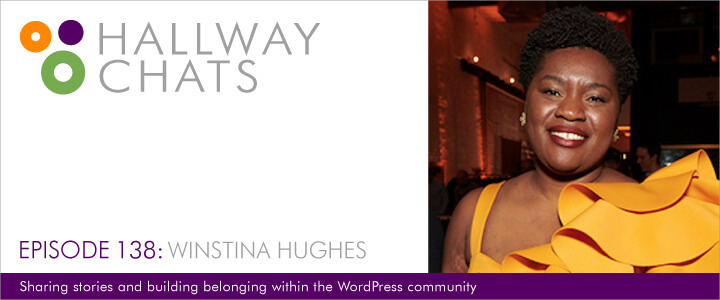
Podcast: Play in new window | Download
Subscribe: RSS
Introducing Winstina Hughes
Winstina is an Assistant Regional Planner for the Maryland Department of Transportation. She created her first WordPress blog for a Geographic Information Systems assignment, and followed it soon after with one on community development and suburban planning. She has presented at WordCamp NYC, WordCamp US, and WordCamp Austin. A WordPress Meetup co-organizer, Winstina led WordCamp NYC 2018.
Photo credit: Photo of Winstina by Tim Parker at the Open film premier in 2019 at WCUS.
Show Notes
Twitter | @planningwrite
Website | WinstinaHughes.com
Website | PlanningWrite.com
HeroPress | We Are the Same
Preferred Pronouns | She/Her
Episode Transcript
Tara: This is Hallway Chats, where we meet people who use WordPress.
Liam: We ask questions and our guests share their stories, ideas, and perspectives.
Tara: And now the conversation begins. This is Episode 138.
Liam: Welcome to Hallway Chats. I’m Liam Dempsey.
Tara: And I’m Tara Claeys. Today we’re joined by when Winstina Hughes. Winstina is an assistant regional planner for the Maryland Department of Transportation. She created her first WordPress blog for a geographic information systems assignment and followed it soon after with one on community development and suburban planning. She has presented at WordCamp New York City, WordCamp US, and WordCamp Austin. A WordPress meetup co-organizer, Winstina led WordCamp New York in 2018. Welcome, Winstina. We’re so glad you’re here.
Winstina: Thanks for having me, Tara. Thanks for having me, Liam. I’m excited to join you.
Liam: We’re so excited to spend some time with you, Winstina. Can you tell us a little bit more about yourself?
Winstina: Okay, I can tell you a bit more about myself. I grew up in northern Jersey in south Orange Maplewood. My family immigrated from Sierra Leone, West Africa, and somehow fate brought me back to Maryland where we settled initially. So I am living and working in Baltimore.
Liam: That’s fantastic. There’s a lot there that we could delve into. But let me just talk a little bit about growing up there since you started with it. How old were you moved from Sierra Leone? Do you remember your country of birth, or were you young enough to not have any memory?
Winstina: I have memories of playing in our backyard. Like the lush greenness of it, the red dirt. Just kind of outside where we lived. I remember just how right it was. I remember listening to my dad calling to see how I was. Just the memory of knowing that my parents were with me, and just really happy to hear his voice.
When we moved here, this is really where I grew up. Those memories are of like a child. When we moved here, that’s when things really start forming. That’s when I started thinking about school. As a kid, I think, when youngest, four or five, things are just kind of like impressions. But then we hit an age where we start understanding what’s around us and we start having a sense of the places where we’re going and the people that we’re spending time with. When we immigrated here, that was the time where things really started forming for me as a child and being aware of the spaces I was in.
I grew up here and every part of who I am is really the experience of being raised here in the states and being raised in South Orange Maplewood.
Tara: Have you been back to Sierra Leone?
Winstina: I haven’t been back. I’m one of those children that hasn’t traveled back since I first came.
Tara: Do you have family there still though?
Winstina: I do. I do have aunts and uncles and I have cousins that are from back home. I have on some cousins that have traveled here and they’ve gone back. But I’ve lived here since we came and it’s been a continuous experience.
Tara: Thank you for sharing your story of coming to this country and growing up here. Tell us a little bit about your experience. I think you talked, before we started recording, about going to school, to grad school. Can you tell us a little bit about your education background and how WordPress fits into that picture?
Winstina: Yes. You mentioned that I’m an assistant regional planner and I went to college for city planning. I went to grad school as well for city and regional planning. It’s really a way of looking at the world, a way of looking and identifying spaces and areas that you can contribute to and you can improve. That’s what I really love about what I studied.
I really enjoy the work that I do currently. I work for MDOT, and works specifically with state highway. We see the tangible results of the projects that we work on. Like when we go to meetings, the individuals that we speak with, there’s a realness to it as opposed to if I were in an office. We spend a fair amount of time in the office, but it’s not like a policy document I’m writing. It’s like I can go and see where I work is and I can listen to understand what the needs are of those who live in the communities that we go to. That’s really what’s always been exciting for me as a planner.
I did some community organizing work as well. Not only that, I worked for the nonprofit in DC as an intern, and I had a chance to look at Housing Trust Fund. I had the chance to look at how they went about organizing around housing issues and even organizing around immigration issues. It’s so exciting to work in a field that touches on all those different areas. It’s that fluidness of the field, working in infrastructure or working with community issues, or working on economic development that led me to writing about what I learned in school. And then writing about it is what really got me more involved within the WordPress community.
First, that JS blog that I wrote in college. Then when I graduated, I started writing a blog on community development for Maplewood. Just in the process of it, all the positive experiences moved me from just blogging on wordpress.com to building my own sites. There’s so much that evolved from that as well, from writing to becoming a meetup organizer and a WordCamp speaker. Just all those opportunities came from just blogging and sharing my thoughts about an area that I’m so passionate about, that I am so fortunate to work in.
Liam: What a lovely story. I mean, you shared so much and I have thousands of questions, but we don’t have days to talk. Thank you for that. I love when you shared that it started with a blog post or a blog and it just went from there and writing about things that you’re very passionate about. And I can tell from your tone of voice, that community involvement, community development, these things really do matter to you.
I would love to know a little bit more about what assistant regional manager for…I’m sorry, planner. I’m sorry I misspoke. Planner does. Because I’m thinking you’re talking about highways. But there’s a lot of roads that a State Department Transportation Agency has input over and control over. And it’s thinking about people’s lives and not just how much is this going to cost to build this new highway or to upgrade the highway. Can you spend just a little bit of time and talk to us about what you actually do, and the kind of day to day, week to week type of thing?
Winstina: On a day to day, what I do is…there are a lot of different components to it. And you’re absolutely right. At the core of it, we’re impacting lives where we’re seeking to improve the quality of life of the people that we serve. A lot of it becomes a question of, how can we improve the experiences that they have as the residents of our state travel home, they traveled to work, they pick up their children or they’re going to different activities, or they’re going to the doctor?
We’re really thinking about how we can get residents safely to where they have to go. I’m part of that process. It’s a very large…how to describe it? Our organization, our business unit, it’s a very large organization. We don’t really call it that. We call it business units. MDOT has several of them, and I’m just a small part of that. I’m a part that gets to go to a county, and really listen to what their concerns are, and what their priorities are. I’m a part of the whole that gets to attend Metropolitan Planning Organization meetings to listen to what their interests are, and to share what the status and impact of our projects are within the boundaries that they’re focused on, that they’re responsible for.
There are 23 counties in our state, and Baltimore City is independent. Our division is really divided amongst these counties. We work together. But the needs are so diverse and the state is so large that we’re assigned to specific places. I’ve had the pleasure of going to Western Maryland and seeing beautiful hills. Absolutely beautiful. I’ve had the pleasure of going to the eastern shore and just seeing the water. I have the pleasure of going to the whole Washington Metro area south, and then going from very urban space into more of a rural space between our counties. Prince George’s County to Charles County.
Maryland is a gorgeous state. I don’t just say that, for the sake of saying is. Having seen different parts of it. It’s like you really don’t get a sense of the whole geography until you have an opportunity to work for the business unit that I do, and then you have an opportunity to travel. And everywhere you go, it becomes very clear that the infrastructure that supports those areas supports them and in different ways. The roads that you have and the hills are different from the ones that you have in a more urban area just by virtue of the number of people that commute on it, as well as the geography itself from urban neighborhoods to more rural ones.
Our work allows us to go to these specific towns or to offices and specific cities and to really have tangible conversations about what we’re committed to and the work that we’re doing together to meet the expectations and the priorities of the counties that we serve. It’s a very broad area if you think about regional planning.
The business unit that I work for understands that. And just because of that, we’re assigned and we’re subject matter specialists for the different regions that were assigned to. That’s a lot of the work that I do as a regional planner. It’s not like agency-specific in terms of…it’s not like a document that comes my way. It’s the focus of the work that I do, and it’s how it ties into the major projects that my business unit works on, from capital projects, from roads to bridges. That’s the role that I fit into it.
Tara: It’s really interesting. It’s something I never think about really. Hardly ever when I drive on roads. I drive through Maryland a good amount actually. I live in Northern Virginia. I don’t really think that much about the process that goes into planning the roads. I did have experience in my neighborhood several years ago where they were changing some of the corner configurations. And that was very contentious because the planners were trying to do some things to improve, to slow down traffic at certain intersections. And they were doing things. I don’t know if this is the kind of thing you do. But they faced a lot of pushback from neighbors and had support from others.
And I’m wondering if, when you go into these situations, it sounds like you have a lot of interaction with the communities, if they welcome you, what that relationship is like. Because I think a lot of times local government, people have…there’s a pothole or they’re focusing on problems. So tell us a little bit about how you manage that interaction, what your relationship is like.
Winstina: That’s a great way of looking at where planners work. And I’ll say that because as a student and now as a professional, I’ve had the opportunity to intern at the local level. Now I’m working at the state level. What you described is a planner who’s working within a locality, and they’re working with the roads and the infrastructure there. There’s some work that our offices are building and maintaining, but the type of experience that you just described is something that a local planner would be more engaged with.
This would be someone who works in the town or works in the city, and they’re tasked with managing the relationships with the residents directly. And they are looking at making roads. Not just handling the potholes. But you have planners that are thinking about ADA compliant, sidewalks, you have planners that are thinking about Vision Zero initiatives. You have a lot of cities and towns that are now committed to zero deaths. And that means going about and understanding spaces differently.
So what a local planner would do is go and look at how people are using the sidewalks, how they’re crossing the roads, looking at how drivers are turning, making a left turn or a right turn, or just really trying to understand the movement and how people are living their lives in those spaces. Then they step back and they think, “Well, what if we move the sidewalk here? What if we change the light? The amount of time in between the different signals?” Or “What if we put on a cross, one of those signs over here? What if we add an image of a bicycle as a way of letting pedestrians know that, yes, they’re crossing, but then, as a way of letting pedestrians also know they’re cyclists that are also going down the stretch of road? It’s a way for drivers to look up and see, “Oh, yeah, I’m having this space with people who are biking and cyclists and people who are walking, pedestrians.”
Liam: I’m going to ask you about success. We ask all of our guests about their definition of success. And it might be a personal definition, it might be a professional definition, Winstina. For you it might be a mixture of both. How do you define success?
Winstina: I see success as an ongoing experience. There was a time when I equated success to achievements. You know, equating it to graduating from college, equating it to getting my graduate degree, equating it to my first job, equating success to a relationship. “Oh, wow, I’m celebrating my friendship with my best friend. Like we’ve known each other for 20 years.” I used to equate successes to these milestones. But now I see it more as an ongoing experience. It’s not the amount of time that I’ve had her as a part of my life, it’s the experiences that we’ve had over these 20 years.
It’s not the degree that’s that success. It’s the experience of having earned it and having achieved that goal. It’s not the job that I have. It’s the ability to see tangible results that we accomplish every day. That’s what I’ve come to see success as. Also I’m starting to see success as opportunity to experience and share the things that I now either possess or have achieved with somebody else. That’s how I see, and that’s how I just define success.
Tara: Lovely. That’s great. I love the thought of experiences of success. I’m not sure we’ve heard that explained that way before, but I think it’s excellent. Thank you for sharing that.
Winstina: Thank you.
Tara: I’m going to ask some WordPress stuff now, because we don’t talk…this is not a WordPress podcast, but we talk to people who use WordPress, and that’s how we know you. So can you tell us a little bit? You’ve spoken at some WordCamps. So obviously, as we said in the intro, you’ve used WordPress. So tell us a little bit about how you found WordPress. You talked about your blog, how you found the community specifically, and got involved in speaking and being an organizer.
Winstina: Well, I started using WordPress…after the course, I started attending meetups. I actually started using and creating and building sites when I started attending WordPress New York City’s meetups. Steve Brunner, he was the organizer that I had a chance to meet when I was attending those events. I ended up going to the ones after class and it was just great.
It was an opportunity to kind of jump in and to learn and to experience what it’s like to build something and break it. You put a site online and you’re learning, you’ve never done it before, and it’s kind of like, “Well, what happens if I add this? What happens if I do that?” When you’re in a space that encourages you to just try it, then you do. And I did. That’s really what keeps bringing me back to meetups, to attending them, and to participating in our different events. Even attending WordCamps.
I love to imagine ways of using the CMS and I love training others on features, and I love empowering people who are beginners and they just don’t know where to start, or they feel really overwhelmed. I love getting them to a place where they want to jump in like I did. That really speaks to having been welcomed into such a great community, and then being supported to continue contributing within New York City and being able to branch out of New York City into other cities as a WordCamp speaker. That’s really the flow of how my experience has been within the community.
Tara: What did you speak about? Are they the same general talks, or what?
Winstina: I always approach the world through the lens of a planner, and I approach using WordPress from the perspective of a planner that wants to engage communities. There’s a part of our work which is community engagement. In fact, it’s often mandated by the government. And community engagement reflects in different ways, whether you’re at the state level, or the local level, or at the county level. Whenever you have projects, oftentimes, the community has the opportunity, and in fact, they have to have a commenting process. You don’t have a choice in it. And this is how we’re better able to serve the needs of those who we meet by giving them spaces to comment.
There was a time when you would have meetings and people would physically come. I love being in this time now, where social media is a way that you can get people to comment on a development that’s coming. I love, the idea of building a blog, which is where we’ve moved into. We’re even expanding beyond that into crowdsourcing. So I started looking at using WordPress blogs as a place for local people to come and comment on the plannings happening locally. Whether or not it’s a street, or it’s a house, or it’s an apartment building, or there’s a store relocating, having a place online where they can go and share their thoughts, constructive criticism or observations, it’s really great to create it and to see it.
I started with the blog for Maplewood. And having these really amazing responses, like families, like moms and dads commenting, like our mayor commented. It was phenomenal to see folks just talking about what they’re observing and asking questions. Then it was great because it was pushing me to think differently and to seek out the right answers. Like doing research or talking to local experts to better answer the questions. The ability to do that is great. It’s great to be able to create spaces like that.
I moved from building a blog to joining a competition. It was sustainable New Jersey and putting together an eCommerce site from the perspective of a planning department. There was a local government that was looking at ways of increasing economic development for residents. So I put together a WooCommerce site where residents could sell their products. It’s like using WordPress in these creative ways that give the everyday person like you and me a chance to share our thoughts or even support each other. That’s just really how it’s flowed from me.
Liam: You do so much there. You’re such an amazing conversationalist and you say things at so many different levels. I’m not sure where to go.
Winstina: You’re lying.
Liam: I’m serious. I’m sincere. One of the things that I picked up on really was how your involvement with WordPress or using WordPress as a platform to garner feedback and have conversations from folks in the communities that you’re trying to serve through planning have forced you to think outside what is your definition of a box, and to consider what other people think of the box, so to speak. So really made you kind of think in new ways and do more work to get a better understanding of what quote-unquote, “the right answer” is.
Winstina: Absolutely. And I work with engineers too. Planners are very conceptual, and we’re very creative. Every day I’m on calls with engineers, and they approach the world so differently. Our goals are the same. Our commitment is the same. What we are doing is the same. But they see things differently. That’s what we’re tasked with is seeing things outside of the boxes that we’re used to.
Liam: Winstina, we only have a couple of minutes left, but you’re onto something that I want to ask for your insight on. Thinking outside our own mental box is hard. There’s a lot of work. There’s a lot of effort. Not just psychologically, but emotionally. We’ve got to commit to it. No, that person isn’t stupid. No, that person isn’t mean. They’re thinking about it in ways that they have experiences that I don’t have. I think at this point in time in our history, I think we can all probably agree that there’s a lot of value in trying to think as others think and appreciate their experience. Certainly in the United States, there’s a lot of people who struggled to do that. I wonder if you can share with us what either skills or tips you’ve gotten to kind of address that, to make that a little easier.
Winstina: That’s a really great question. There is one point that someone brought up with me after a professional enrichment program. It was the last day and we were kind of reflecting on how great it was and how much we enjoyed it. They were also sharing their experiences with me, and he said something that was really great. He was like, “You know what you know, but you don’t know what you don’t know.” And that floored me.
That is the first I would say tip that I’ve gotten from me to look outside of my box and to try to better understand other frameworks and to help me try to understand what’s around me. Now I’ll just ask questions like, “Is there a question I should have asked you that I didn’t?” That’s now how I approach conversations, you know, fully understanding that there are things I don’t even know to ask, there are things that I don’t even know exist. It’s the only way that I can manage that handicap is by asking the person who is across from me, the person who I’m on the phone with after we’ve talked, you know, is there a question I should have asked you that I didn’t is? Is there something that you want to share with me that I didn’t think to bring up? That’s really helped me a lot since the conversation. That was about a year ago that we had it. And it’s just shifted things for me a lot.
Tara: That’s excellent advice. We always ask people to share advice with us, and I don’t think Liam was even heading necessarily directly there, but we got there. That’s fabulous. Thank you so much for sharing that.
Winstina: I hope I answered the question.
Tara: Sure. I have to say, is there anything that we haven’t asked you that you’d like to talk about?
Winstina: Anything that you haven’t asked me but I’d like to talk about. I think that we’ve covered a lot. I know I talked a lot about planning and I love it. But I really enjoy being a part of this community. I’m going to miss not being able to go to WordCamp Philly and see. I’m going to miss not being able to go to WordCamp Baltimore and New York City.
I’m just excited that we have moved into the Zoom space, having webinars and moving into these conversations. It’s just exciting for me. So I’m just looking forward to seeing how much more we can stay in touch with each other. I do want to share that New York City has Women of WordPress group. And we’ve gotten such great feedback from it, from women and other parts of the world. We’re looking at seeing if we can actually have events as a part of…just whole women from around the world just hosting events in their cities, but being one. That’s something that I would really love to share. I hope that the possibility is really expand with that. I hope there’s more that I can share in the future to see how it evolves.
Tara: That’s wonderful. We’ve spoken to some women in other countries who are women in WordPress meetups, and it’s fabulous to see how that’s grown and become a thing. So that’s great that you have that going on in New York City. Thanks for sharing.
Winstina: Thank you. Thank you. Our men are very supportive.
Tara: You’re starting in Baltimore?
Winstina: Well, New York is home. New York, New Jersey is home. And the great thing about it now that we’re home by ourselves with Zoom is that we’re no longer tied to geographic space. That’s one of the most beautiful things right now, I think.
Tara: Yeah, for sure. For sure.
Liam: Yeah, absolutely. Absolutely. Winstina, this has been an absolute pleasure.
Winstina: Thank you.
Liam: You’re very welcome. Thank you. Where can folks find you online?
Winstina: You can find me at a New York City meetup, whoever there. I have a website, winstinahughes.com that touches on the things that I’ve done. My handle is @planningright. I do some training as well with WordPress. So you can find me with my handle @planning right or on my website, winstinahughes.com. There are ways to connect there as well.
Tara: Great. Thank you so much again. It’s really been delightful to share this time with you.
Winstina: Thanks for having me. I’m excited. It’s great to talk to you, Tara. I enjoyed this. Thank you, Liam.
Liam: You’re very welcome. Thank you for joining us. Bye for now.
Winstina: Thanks. Bye.
Tara: If you like what we’re doing here – meeting new people in our WordPress community – we invite you to tell others about it. We’re on iTunes and at hallwaychats-staging.ulpgsyz6-liquidwebsites.com.
Liam: Better yet, ask your WordPress friends and colleagues to join us on the show. Encourage them to complete the “Be on the show” form on our site, to tell us about themselves.
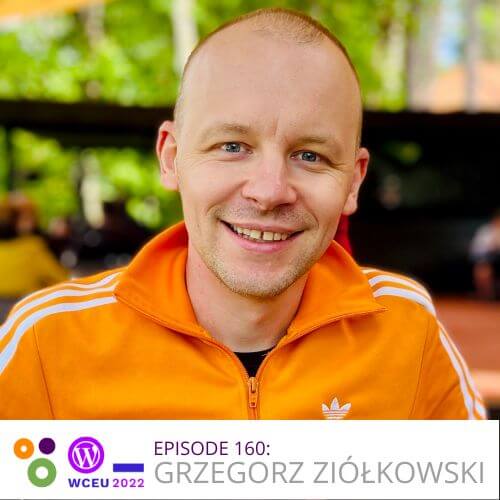
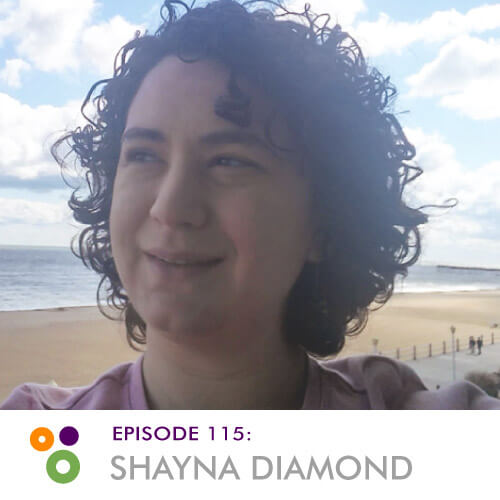
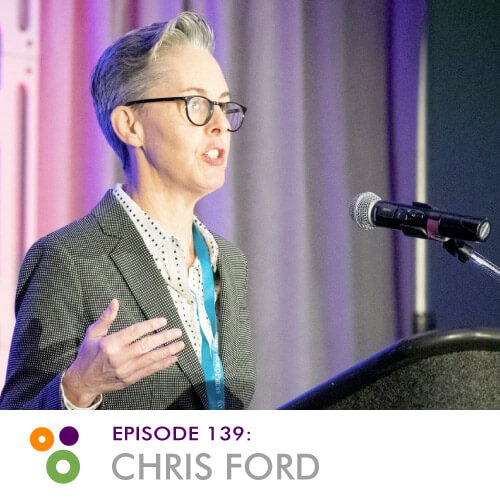
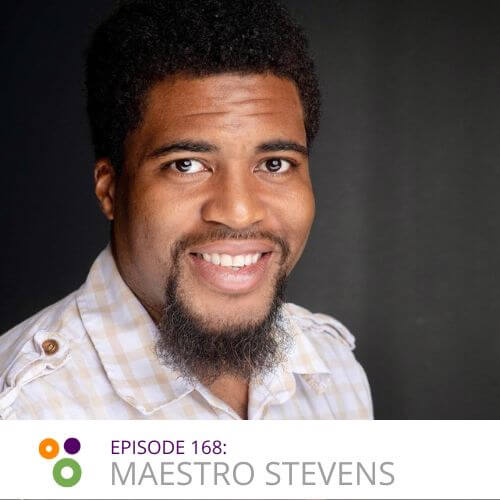
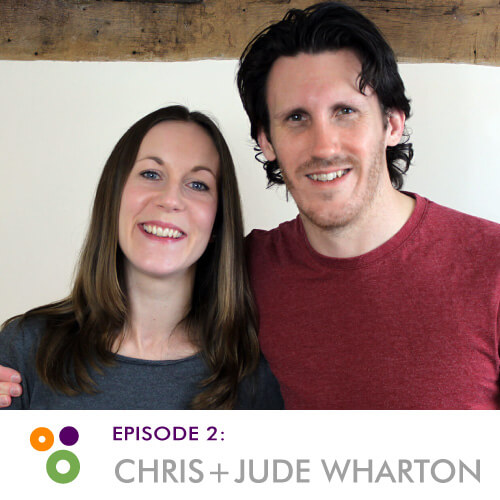
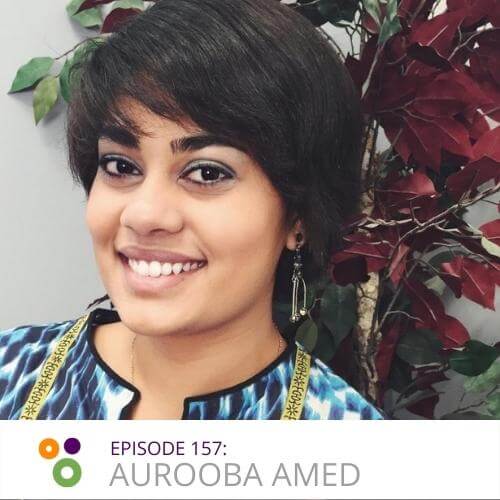
2 Comments